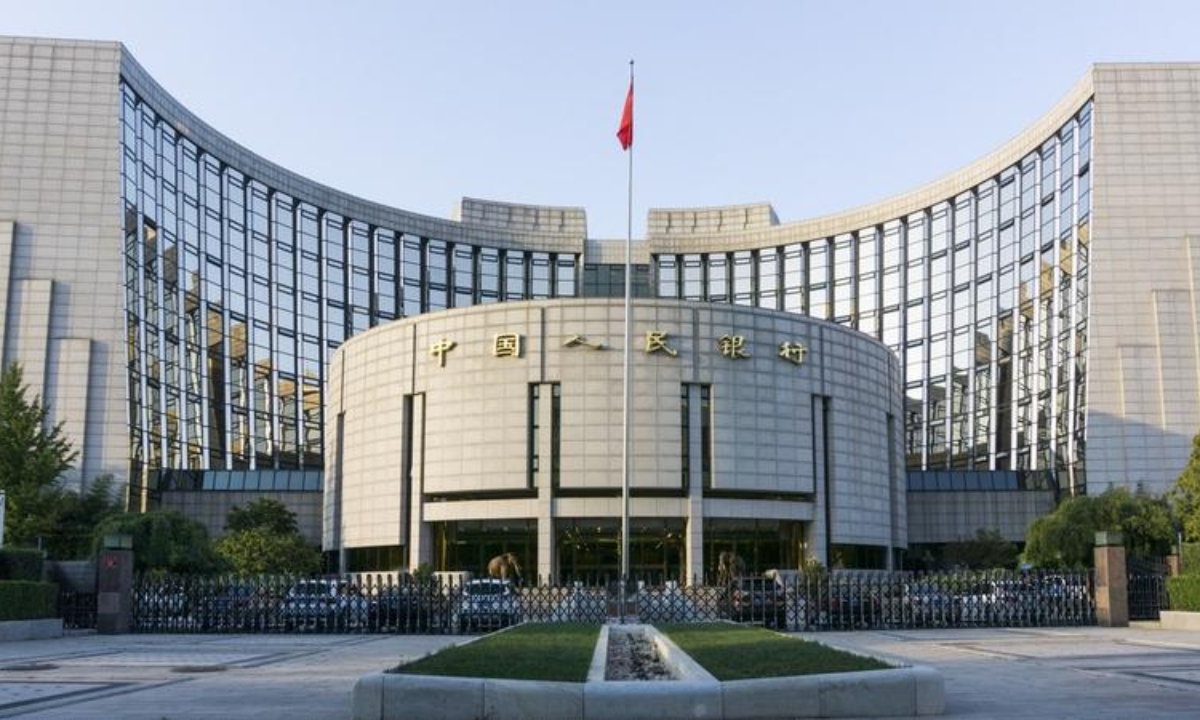
The headquarters of the People's Bank of China in Beijing Photo: IC
China's central bank on Friday officially launched a re-lending facility and a swap program as two new monetary policy tools to boost the country's capital market development.
It will play a positive role in stabilizing the capital market, promoting market development, and enhancing investor confidence, experts said.
The People's Bank of China (PBC), the country's central bank, on Friday officially unveiled a special re-lending facility to guide banks to provide loans to qualified listed companies and their major shareholders for buybacks and increasing shareholdings to support a stable operation of the capital market.
The initial re-lending amount is 300 billion yuan ($42.16 billion), with an annual interest rate of 1.75 percent and a term of one year, with the possibility of extension depending on the situation, the PBC said on its official website.
The re-lending policy applies to publicly listed companies of various ownership types. A total of 21 national financial institutions are authorized to issue loans to support stock buybacks and shareholding increases by listed companies, as per policy regulations, the PBC said.
These 21 financial institutions can independently decide whether to grant loans, determine the loan requirements, and bear the associated risks. The loan interest rate is in principle capped at 2.25 percent. The funds from these loans must be used specifically for their intended purpose and managed in a closed loop, the PBC said.
The re-lending funds have specific directionality. The fact that credit funds cannot illegally enter the stock market remains a red line of financial supervision, PBC governor Pan Gongsheng said at the Financial Street Forum on Friday.
The re-lending facility is helpful for stabilizing the market, Dong Shaopeng, a senior research fellow at the Chongyang Institute for Financial Studies at Renmin University of China, told the Global Times on Friday.
"The tool ensures that funds are managed in closed loops, dedicated only to their intended purposes and governed by proper financial arrangements," Dong said.
The PBC also announced to officially start the operation of the Securities, Funds and Insurance companies Swap Facility (SFISF) on Friday, another policy tool to support the healthy and stable development of the capital market.
"The introduction of swap facilities allows for greater flexibility and stability in the financial system, injects liquidity and ultimately benefits the broader economy," Dong said.
Overall, the implementation of these tools is beneficial for maintaining stability in the equity market, Yang Haiping, a research fellow at the Institute of Securities and Futures of Central University of Finance and Economics, told the Global Times on Friday.




